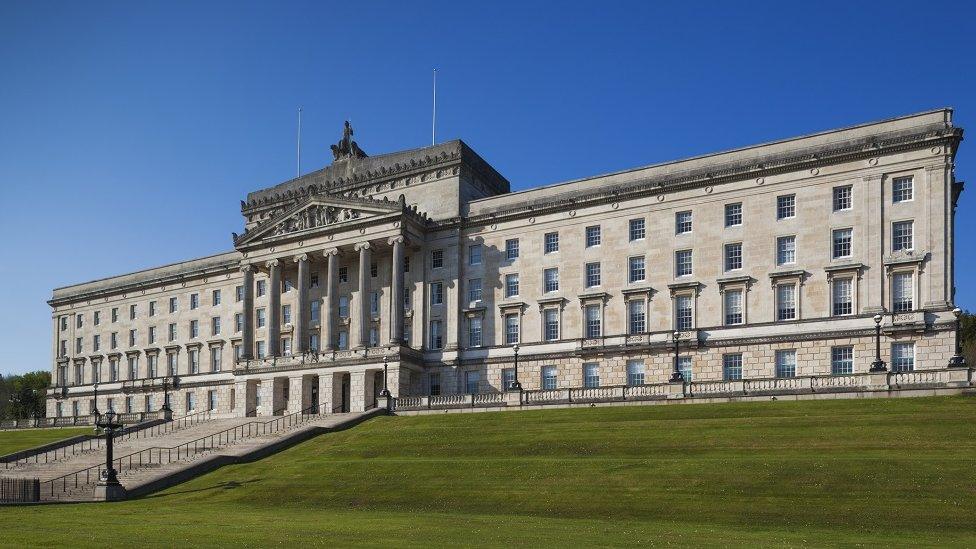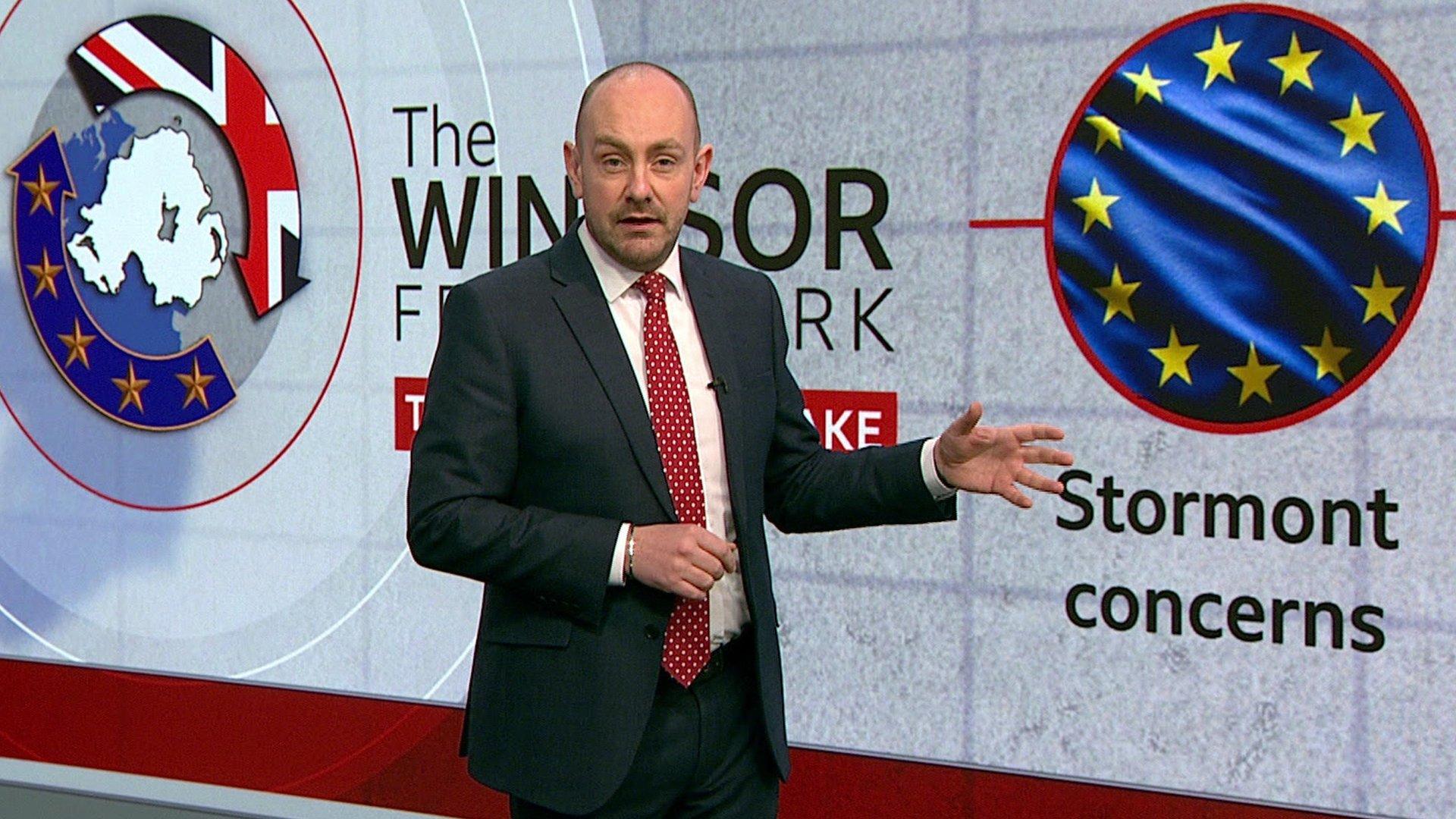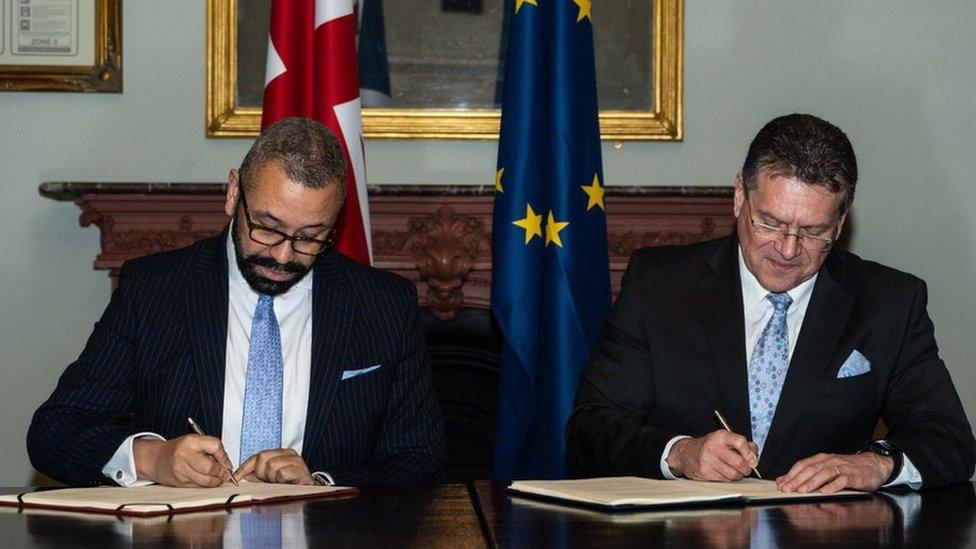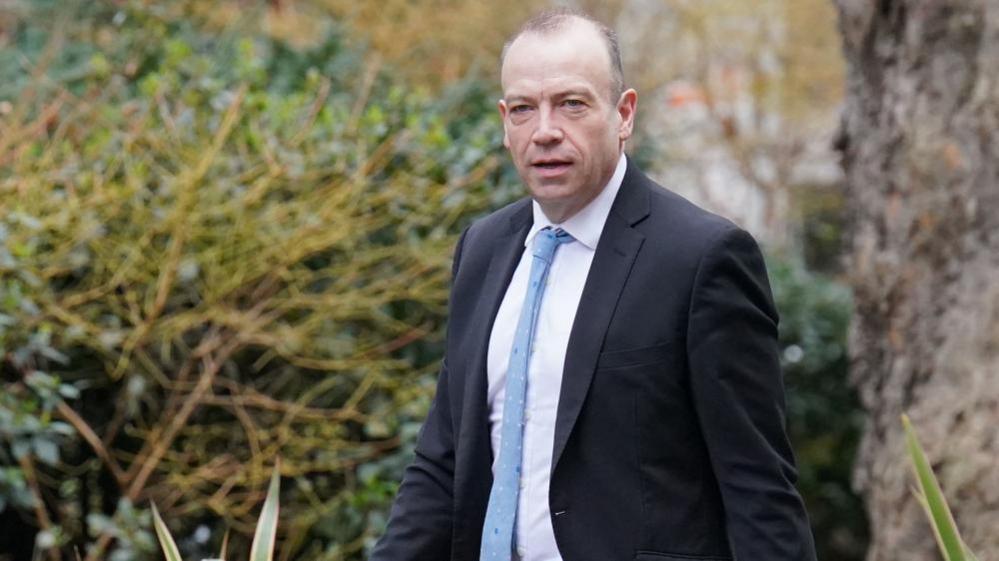Brexit: EU carbon law 'could be Stormont brake's first test'
- Published
- comments

A new EU carbon law could bring the Stormont brake, which is part of Northern Ireland's Brexit deal, into play for the first time
A major EU environmental policy could become a test of the Stormont brake, new analysis, external has suggested.
The brake is a key part of Northern Ireland's Brexit deal, known as the Windsor Framework.
It effectively gives the Northern Ireland Assembly a conditional veto on new EU rules applying here.
University of Sussex academics say the EU's Carbon Border Adjustment Mechanism (CBAM) would be considered a new rule and so bring the brake into play.
However, a UK government source has said that while a cross-community Stormont vote would be needed to add the CBAM to the framework, it would not involve the specific Stormont Brake mechanism.
In any case, Stormont would have to be sitting for politicians here to have a formal say.
Northern Ireland has been without a functioning government since February 2022 when the DUP walked out of the first minister role in protest against the earlier Brexit deal, known as the Northern Ireland Protocol.
Watch: How would the Stormont brake work?
The brake can be triggered if 30 members of the Assembly object to a new EU rule being applied in Northern Ireland.
The UK government has said the mechanism cannot be used for "trivial" reasons and that there would need to be a clear demonstration that the rule being challenged would have a "significant" impact on everyday life in Northern Ireland.
If the brake is used under those conditions, the EU law in question would automatically be suspended within a maximum period of four weeks, ahead of further independent arbitration with the EU.
Consultative mechanisms in the Windsor Framework are also supposed to mean that the EU and UK resolve issues around new rules so minimising the risk that the brake will have to be used.
Academics at the University of Sussex Centre for Inclusive Trade Policy have been looking at how the EU's CBAM policy could interact with the Windsor Framework.
The CBAM is effectively a carbon or fossil fuel tax on imported goods like steel, cement and fertiliser.
It is being introduced to ensure that European industry, which has to pay for permits to use carbon, can compete fairly in the manufacturing of those goods.
The EU is set to start the transitional phase of the CBAM in October before it becomes fully operational in 2026. It has not yet officially said if they believe the CBAM should be incorporated into the Windsor Framework.
'Significant impact' on NI
A UK government spokesperson said it was assessing the potential impact of the law and that it wants to "ensure that clean power generated in the UK can be traded efficiently".
"It's important that the EU CBAM reflects how cross-border electricity trading works in practice.
"For CBAM to apply in Northern Ireland it would need to be agreed to by the UK government, as required under the Windsor Framework."
The Sussex academics, Xinyan Zhao and Dongzhe Zhang, have said that, assuming the EU wants to apply the CBAM in Northern Ireland, it would have "a significant economic impact".

The Northern Ireland Assembly would have to be sitting for the brake to be used - it has been inactive since February 2022
They have suggested it could have implications for trade both from Great Britain to Northern Ireland and from Northern Ireland to the Republic of Ireland.
"If the EU considers that Great British goods may move to the EU through the checkpoint-less Northern Ireland border after entering Northern Ireland to circumvent the EU CBAM, the EU could argue for imposing CBAM measures on these goods at the Irish Sea border," they said.
This could apply to both goods produced in Great Britain and those from third countries.
They say issues could also arise with north-south trade because goods manufactured using electricity bought from the Northern Ireland's retail electricity market are subject to the UK's carbon price rather than the EU's.
The academics added that it is currently unclear how the European Commission will deal with this issue.
They concluded that the only way to implement CBAM in Northern Ireland that would not negatively affect imports is for the UK and EU to relink their carbon pricing schemes and for the UK to establish an EU-style CBAM.
They said that would mean the UK and EU measuring the carbon content of imports in a consistent manner and having Northern Ireland importers be exempted from the EU CBAM tariffs at Northern Ireland ports.
It's understood that UK officials are continuing to monitor the details of the EU CBAM as its implementation progresses, noting that the EU have said the transitional period will involve continued consultation with stakeholders including international partners.
Related topics
- Published28 February 2023

- Published28 February 2023

- Published24 March 2023

- Published22 March 2023
